Facial Feminization Surgery (FFS) in Bali
Search and Compare the Best Clinics and Doctors at the Lowest Prices for Facial Feminization Surgery (FFS) in Bali

Find the best clinics for Facial Feminization Surgery (FFS) in Bali
No pricing info available
Thailand offers the best prices Worldwide
Price: $ 1,945
RSU BaliMéd Negara, located in Jembrana, Bali, Indonesia offers patients Facial Feminization Surgery (FFS) procedures among its total of 354 available procedures, across 12 different specialties. Currently, there's no pricing information for Facial Feminization Surgery (FFS) procedures at RSU BaliMéd Negara, as all prices are available on request only. There is currently a lack of information available on the specialists practicing at the Hospital, and they are not accredited by any recognized accreditations institutes
Balimed Denpasar, located in Denpasar, Bali, Indonesia offers patients Facial Feminization Surgery (FFS) procedures among its total of 354 available procedures, across 12 different specialties. Currently, there's no pricing information for Facial Feminization Surgery (FFS) procedures at Balimed Denpasar, as all prices are available on request only. There is currently a lack of information available on the specialists practicing at the Hospital, and they are not accredited by any recognized accreditations institutes
Compare Before & After Photos of _procedure_photos.phpFacial Feminization Surgery (FFS)
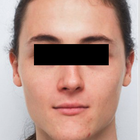
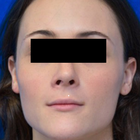
Front view
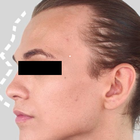
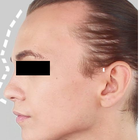
Half-side view
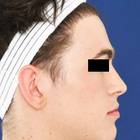
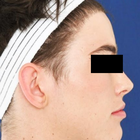
Full-side view
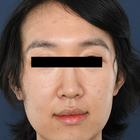
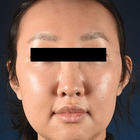
Front view
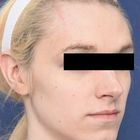
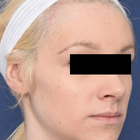
Half-side view
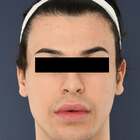
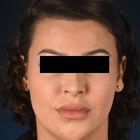
Front view
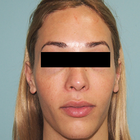
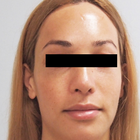
Front view
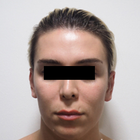

Front view
WHY US?
At Medijump, we're making medical easy. You can search, compare, discuss, and book your medical all in one place. We open the door to the best medical providers worldwide, saving you time and energy along the way, and it's all for FREE, no hidden fees, and no price markups guaranteed. So what are you waiting for?

Free

Best Price

Widest Selection

Risk-Free
What you need to know about Facial Feminization Surgery (FFS) in Bali
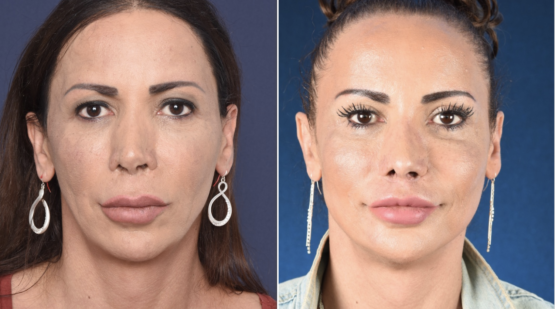
Facial Feminization Surgery, often abbreviated as FFS, is an extensive surgical process designed to modify masculine facial characteristics into a more feminine appearance. The procedure comprises several surgeries including rhinoplasty, forehead recontouring, and jaw and chin modifications. FFS is frequently sought after by transgender women desiring to more authentically express their gender identity. Any potential patient is advised to consult with a licensed surgeon to personalize the surgical plan according to their specific needs and aspirations.
Facial Feminization Surgery (FFS) usually necessitates an exhaustive pre-procedure assessment. This involves a thorough review of the patient's medical history, a complete physical examination, a psychological evaluation, and possibly facial x-rays. The surgeon will also discuss the aesthetic objectives, benefits, risks, and potential complications of the surgery with the patient. A collaborative decision-making approach is used to ensure patient safety and contentment following the procedure.
In this before and after example, the patient underwent Rhinoplasty, Chin recontouring, Jaw reduction, Lip lift, and eyelid surgery (blepharoplasty). The photo is taken 4 months post-op.
What is the cost of Facial Feminization Surgery (FFS) in Bali?
Various elements such as the surgical complexity, hospital stays, anesthesiologist costs, and surgeon's fees influence Facial Feminization Surgery (FFS) pricing in Bali. On average, possible charges vary from $20,000 up to $50,000. A detailed price breakdown from your healthcare provider will provide an exact view of the cost details.
The value of the procedure does not necessarily need to compromise the quality and standards of the surgery. Gain clarity about what components are inclusive and exclusive in the overall cost to understand thoroughly what your payment encompasses. Insurance firms usually do not cover aesthetic procedures, hence comprehensive knowledge and prudent financial preparation will streamline the procedure and make the Facial Feminization Surgery (FFS) a valid investment in enhancing your self-perception and assurance.
What does a Facial Feminization Surgery (FFS) Procedure Involve?
Facial Feminization Surgery (FFS) entails a range of tailored techniques aimed at personal needs with a focus on feminizing and gently modifying the facial structure. These techniques may encompass forehead reshaping, adjustments to the jaw and chin, rhinoplasty, facelifts, and other unique enhancements. The rising trend in health and well-being-oriented medical research is mirrored in personalized surgery schemes, ensuring the outcomes are attuned to individuals.
Normally, a care center will execute an in-depth consultation process to comprehend your aesthetic aspirations and draft a surgical blueprint. This evaluation is essential in harnessing the maximum advantages from the Facial Feminization Surgery (FFS). Ensuring the health and safety of the patient, a pre-operative assessment, encompassing a review of physical health and mental well-being, is a crucial measure.
How Long Should I Stay in Bali for a Facial Feminization Surgery (FFS) Procedure?
During the planning phase for Facial Feminization Surgery (FFS), considering the necessary time for the operation and subsequent recovery is vital, in order to ensure a seamless return to standard duties. The length of your Bali visit is heavily influenced by the surgery’s intricacy, your personal health condition, and your recovery speed. Generally, a timeframe of one to two weeks is advised before getting back to everyday activities.
However, the precise timeline can differ considerably, with follow-up meetings commonly arranged during your stay. These are paramount for evaluating your progress and identifying any possible surgical complications. This window also presents a chance for practising respiratory exercises and other preventive health methods to expedite a seamless recovery. Adherence to all the instructions given by your surgeon during this term is critical, as this significantly influences the success rate of the Facial Feminization Surgery (FFS).
What's the Recovery Time for Facial Feminization Surgery (FFS) Procedures in Bali?
Recovery from Facial Feminization Surgery (FFS) can differ among individuals, largely depending on the procedure's scope and the patient's overall health. Usually, patients require approximately six weeks of recuperation before they can engage in strenuous activities. During this time, individuals may experience swelling, bruising, and discomfort related to the surgery, but these symptoms typically diminish over time.
Getting plenty of rest, maintaining adequate hydration, and consuming a balanced diet can aid in accelerating recovery. It's vital to strictly follow the healthcare provider's advice regarding prescribed medicines, care of surgical wounds, and limitations on activities to prevent complications and promote healing. Keep in mind that health and well-being extend beyond the surgical procedure itself, so comprehensive aftercare is essential for successful outcomes.
What sort of Aftercare is Required for Facial Feminization Surgery (FFS) Procedures in Bali?
Appropriate aftercare is a vital component of successful Facial Feminization Surgery (FFS) and significantly influences the recovery process. It may include prescribed medications, regular medical check-ups, custom-made nutrition plans, and effective weight management. The recovery phase could span several weeks, during which adequate rest is paramount for a seamless recuperation.
Patients are often advised by their surgeons to temporarily abstain from rigorous physical activities and to maintain a healthy lifestyle. The latter should incorporate balanced nutrition, staying hydrated, taking supplements, and ensuring proper sleep and mental health management. It's important to note that adherence to the prescribed aftercare plan and attendance at follow-up visits are key to tracking improvements and promptly addressing any potential complications.
What's the Success Rate of Facial Feminization Surgery (FFS) Procedures in Bali?
Facial Feminization Surgery (FFS) is recognized as an extremely successful surgery that produces transformative and enduring outcomes. The success rate fluctuates depending on various factors, including the proficiency of the surgeon, the overall health of the patient, and the quality of care after the surgery. A majority of patients report high levels of satisfaction, citing increased self-confidence and an enhanced quality of life.
It's important to understand, however, that despite its high success rate, the procedure isn't without potential risks and complications. Complications like infections, scarring, and dissatisfaction with the aesthetic outcome are potential, though they are rare occurrences. Thorough pre-operative evaluations, skilled surgical hands, and comprehensive post-operative care significantly lessen these risks. Consequently, when selecting the most suitable protocol for your Facial Feminization Surgery (FFS), the guiding factors should be patient safety and satisfaction.
Check out this video for before and after images of FFS patients, you'll be amazed by some of the results made possible by this surgical procedure.
Are there Alternatives to Facial Feminization Surgery (FFS) Procedures in Bali?
Bear in mind that each person's needs and preferences are distinct, and surgical interventions might not be the most suitable route for everyone. There are other alternatives available for those who might be more inclined towards non-surgical solutions. Aesthetic treatments like injectable fillers, Botox, and others can simulate some effects of the Facial Feminization Surgery (FFS) on a temporary basis. However, cosmetic treatments of this kind typically necessitate ongoing sessions to preserve the sought after result.
Furthermore, some individuals might prefer to engage in psychological or behavioral therapies that encourage self-acceptance and a positive body image. Such therapies address the mental health components of self-image and gender dysphoria, offering a different perspective to surgery. Having open-ended discussions with healthcare providers to explore all the available options prior to making a decision is strongly advised.
What Should You Expect Before and After the Facial Feminization Surgery (FFS)?
Prior to undertaking Facial Feminization Surgery (FFS), patients participate in an in-depth consultation process. During this stage, surgeons evaluate the individual's health status, expectations, and motivations to design a treatment program that best meets their needs. Various health screenings may be conducted to verify the patient's physical suitability for the operation.
Post-procedure, initial weeks may bring about some degree of discomfort, swelling, and bruising, which will progressively decrease. Adequate post-procedure care can significantly improve recovery and the ultimate outcome of your Facial Feminization Surgery (FFS). It's crucial to maintain regular communication with your surgeon and promptly report any unusual symptoms. The goal is to ensure a successful surgical procedure followed by a rapid and smooth recovery, guiding you towards a more self-assured version of yourself.
What is the Preoperative Preparation for Facial Feminization Surgery (FFS) in Bali?
Preparing for Facial Feminization Surgery (FFS) entails addressing both physical and mental aspects to ensure successful surgery and recuperation. Patients undergo comprehensive evaluations involving various diagnostic tests to determine their overall health and suitability for the surgery. Moreover, patients may need to halt tobacco use, moderate alcohol consumption, and adjust certain medications—especially those affecting blood clotting—as these factors could disrupt both the surgical process and healing.
In addition, therapy sessions may be suggested to assist individuals in managing the psychological implications of such a life-changing procedure. A balanced diet is also pivotal in enhancing the body's healing capacity; adopting a healthy eating regimen, such as the Mediterranean diet, and considering suitable nutritional supplements can optimize preoperative preparation. Emphasizing mental wellbeing is another vital aspect of the journey, and implementing stress management strategies can prove beneficial during this period.
What are the Long-term Implications of Facial Feminization Surgery (FFS) in Bali?
Facial Feminization Surgery (FFS) is often viewed as a long-term commitment that yields lasting and significant transformations. It significantly enhances self-image and self-confidence, leading to a substantial improvement in life quality. Though the changes induced by the surgery are generally unchanging, sustaining a consistent weight and adopting a healthy lifestyle are vital in preserving the results.
It's important to bear in mind that adjusting psychologically is an integral aspect of such a transformative experience. Individual or group therapies can aid in navigating these changes, fostering deep-seated growth and self-understanding following the Facial Feminization Surgery (FFS). Always remember, the success of a procedure goes beyond the physical alteration—it also involves overall wellbeing, health, and a positive life perspective.
Whilst the information presented here has been accurately sourced and verified by a medical professional for its accuracy, it is still advised to consult with your doctor before pursuing a medical treatment at one of the listed medical providers
No Time?
Tell us what you're looking for and we'll reachout to the top clinics all at once
Enquire Now

Popular Procedures in Bali
Prices Start From $96

Prices Start From $111

Prices Start From $70

Prices Start From $16

Prices Start From $220

Prices Start From $28

Prices Start From $672

Prices Start From $275

Prices Start From $101

Prices Start From $556

Prices Start From $4,377

Recommended Medical Centers in Bali for Facial Feminization Surgery (FFS)

- Interpreter services
- Translation service
- Religious facilities
- Medical records transfer
- Medical travel insurance
- Health insurance coordination
- TV in the room
- Safe in the room
- Phone in the room
- Private rooms for patients available

- Interpreter services
- Translation service
- Religious facilities
- Medical records transfer
- Medical travel insurance
- Health insurance coordination
- TV in the room
- Safe in the room
- Phone in the room
- Private rooms for patients available

- Interpreter services
- Translation service
- Religious facilities
- Medical records transfer
- Medical travel insurance
- Health insurance coordination
- TV in the room
- Safe in the room
- Phone in the room
- Private rooms for patients available

- Interpreter services
- Translation service
- Religious facilities
- Medical records transfer
- Medical travel insurance
- Health insurance coordination
- TV in the room
- Safe in the room
- Phone in the room
- Private rooms for patients available

- Interpreter services
- Translation service
- Religious facilities
- Medical records transfer
- Medical travel insurance
- Health insurance coordination
- TV in the room
- Safe in the room
- Phone in the room
- Private rooms for patients available

- Interpreter services
- Translation service
- Religious facilities
- Medical records transfer
- Medical travel insurance
- Health insurance coordination
- TV in the room
- Safe in the room
- Phone in the room
- Private rooms for patients available

- Interpreter services
- Translation service
- Religious facilities
- Medical records transfer
- Medical travel insurance
- Health insurance coordination
- TV in the room
- Safe in the room
- Phone in the room
- Private rooms for patients available

- Interpreter services
- Translation service
- Religious facilities
- Medical records transfer
- Medical travel insurance
- Health insurance coordination
- TV in the room
- Safe in the room
- Phone in the room
- Private rooms for patients available

- Interpreter services
- Translation service
- Religious facilities
- Medical records transfer
- Medical travel insurance
- Health insurance coordination
- TV in the room
- Safe in the room
- Phone in the room
- Private rooms for patients available

- Interpreter services
- Translation service
- Religious facilities
- Medical records transfer
- Medical travel insurance
- Health insurance coordination
- TV in the room
- Safe in the room
- Phone in the room
- Private rooms for patients available
Facial Feminization Surgery (FFS) in and around Bali
About Bali
Bali is an Indonesian province located on the west side of the Lesser Sunda Islands. It is the country’s main tourist hotspot that attracts millions of tourists each year. The beaches are tranquil and perfect for any sun-seeker, the marine life is one of the most diverse in the world, the culture is beautiful, and the mountains are covered in lush jungles and great for hiking. In addition to the natural and cultural beauty, there are myriad of things that tourists can do here, from yoga, partying, surfing, to horseback riding.
Bali is not only full of fascinating beaches, but this tropical paradise also boasts many high-quality medical facilities offering various types of treatments. The island continues to upgrade its infrastructure and develop its medical centers to compete with neighboring countries, such as Singapore and Thailand. Medical tourists are able to avail of a wide range of treatments including cosmetic surgery and at affordable rates. The medical centers have modern equipment, and there is little to no waiting time for almost every procedure. Additionally, the island is also equipped with exclusive yoga centers, Bali-traditional spas, and Jamu traditional medicinal herbs.
Popular Areas in Bali
- Seminyak is known to be the most luxurious area in Bali. Tourists will find many fashionable boutiques, upscale restaurants, and exclusive clubs. In the afternoon, tourists can soak up the sun while sipping a cocktail in one of its famous beach clubs or take a beginner surfing lesson at one of its beaches. The main beach is Petitenget Beach where tourists can enjoy magical sunsets or swim in its warm waters. The area is also home to Bali’s best cafés, which makes café hopping a must-do event.
- The Nusa Islands is located around 20 kilometers offshore from the main island and can only be accessed by boat. It consists of three islands: Lembongan, Ceningan, and Penida. The most popular and the closest to the main island of Bali is Nusa Lembongan. The biggest is Nusa Penida and the smallest is Nusa Ceningan. The three islands offer tranquil and almost-empty beaches, which is perfect for anyone who wishes to stay away from crowds.
- Ubud is the island’s jungle paradise that still retains numerous aspects of traditional Balinese. It is the place for tourists who wants to immerse in Bali’s culture and nature. There are various beautiful temples, dance shows, and historical sites within the area. The most popular place is Ubud Monkey Forest or the Sacred Monkey Forest Sanctuary, which is a sacred temple, an evocative jungle, and natural habitat of monkeys.
- Sanur is Bali’s earliest beach resort and is located on the eastern side of the island; it contains some of the island’s first hotels. The area is known to be family-friendly as well as one of the best places to enjoy Bali’s magnificent sunrises. Sanur is very quiet which makes it the perfect place for relaxation. Wander around for a day and you will find many major cultural landmarks hidden in plain sight.
- Canggu is famous for its green rice fields, dark sandy beaches, and healthy food. This up-and-coming area is also filled with cool cafes and vegan restaurants. It is also a prime spot for surfing since the beaches have massive shore breaks. One of the most famous places in the area is the Pura Tanah Lot Temple as it is a famous seaside religious site located on top of a rock formation, which offers a picturesque view.
Weather and Climate in Bali
Bali enjoys warm and comfortable weather all year round. The tropical island experiences two seasons: dry and wet. The dry season starts in April and ends in October. The average temperatures during this season are between 23 °C to 31 °C. June to August are the driest months, making them the best months to visit the island. The wet season is from November to March. Expect to find many rainy days during the wet season. The temperatures are generally similar to the dry season, but the humidity will increase significantly.
Getting Around in Bali
I Gusti Ngurah Rai International Airport is the main gateway to Bali and it is located 13 kilometers south of Denpasar and is the second busiest airport in Indonesia. The airport has international connections with major cities around the globe, including Bangkok, Melbourne, Moscow, and Guangzhou. It also serves domestic flights to many regions within Indonesia. The most affordable way to travel to and from Bali is by flying with budget airlines, such as AirAsia, Citilink, and Lion Air.
There are several ways to get around Bali. Most of the transportation options are very affordable. Hiring a motorcycle is the fastest option, but if you do not like the idea of driving by yourself, you can try the motorcycle taxis known as ‘ojek,’ which can be hailed directly from the streets or by using apps such as Grab and Go-Jek (similar to Uber). The apps also provide private cars and food delivery. Taxis are widely available and run on a meter. The most reliable taxi companies are Blue Bird and Express.
Tourist Visas in Bali
Indonesia is known to be a visa-friendly country since most developed countries can enter without a visa. The country allows a citizen of 170 countries to enter and stay for up to 30 days. Citizens of Japan, the United Kingdom, the United States, and 65 other countries can apply for a visa on arrival. It is best to check at the nearest Indonesia Embassy or Consulate to find out if you need a visa or not. All visitors are required to have a visa valid for at least 6 months.
Additional Information
- Local Currency: Indonesian Rupiah (Rp) is the official currency, and $1 converts to Rp14.000.
- Money & Payments: Tourists will find ATMs that accept international cards almost everywhere (mostly Visa and MasterCard). Credit and debit cards are accepted in many shops, restaurants, and hotels. Tipping is not expected but will be greatly appreciated.
- Local Language: The official language is Bahasa Indonesia, and most people will also speak Balinese. English is widely spoken, especially in tourist areas.
- Local Culture and Religion: Most people in Bali follows Hinduism, and almost every aspect on the island is submerged with the Hindu faith. There is also a large group of Muslims as well as small group groups of Christian and Buddhists.
- Public Holidays: Bali celebrates major religious holidays, including Nyepi (Silent Day), Eid Mubarak, Christmas, and Vesak.
Popular Searches
- Plastic Surgery in Thailand
- Dental Implants in Thailand
- Hair Transplant in Thailand
- Breast Augmentation Thailand
- Gastric Sleeve in Thailand
- Gender Reassignment Surgery in Thailand
- Laser Hair Removal in Bangkok
- Botox in Bangkok
- Dermatology in Bangkok
- Breast Augmentation in Bangkok
- Coolsculpting in Bangkok
- Veneers in Turkey
- Hair Transplant in Turkey
- Rhinoplasty in Turkey
- Stem Cell Therapy in Mexico
- Rhinoplasty in Mexico
- Liposuction in Mexico
- Coolsculpting in Tijuana
- Rhinoplasty in Korea
- Scar Removal in Korea
- Gastric Sleeve in Turkey
- Bone Marrow Transplant in India
- Invisalign in Malaysia
- Plastic Surgery in the Dominican Republic
- Tummy Tuck in the Dominican Republic
- Plastic and Cosmetic Surgery in Poland
- Rhinoplasty in Poland
- Hair Implant in Poland
- Dental Implants in Poland
- IVF in Turkey

